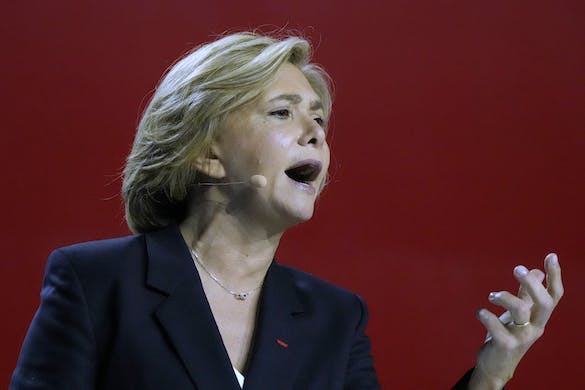France: The Patriarchy Strikes Back
France as a culture and as a society has always paid much attention and expressed much devotion to women, but it has been remarkably reticent about their involvement in politics.

Will the French elect a woman for president in 2022? That would be a revolution. Although France as a culture and as a society has always paid much attention and expressed much devotion to women — it’s national persona is Marianne — it has been remarkably reticent about their involvement in politics.
Under the monarchy, the Salic Law barred women from the throne. This is why England and France fought the Hundred Years War. Edward III of England claimed the French throne as a matrilinear grandson of King Philip IV. The French opted instead for a patrilinear distant cousin, Philip VI of Valois.
The Republic was barely kinder to women. It did not enfranchise them until 1945, a late date by Western standards; and it took a conservative Statesman, Charles de Gaulle, to do it. In the ensuing half-century, female politicians were still marginalized, and with the tacit approval, as numbers show, of the female voters themselves.
Between 1945 to 1993, there was never more than 5 percent of women in the National Assembly, the main house of France’s parliament, nor more than 15 percent of women in the cabinet. Only after “parity” — a requirement that elected offices should be equally divided between men and women — was passed into law in 2000 did the proportion of women rise to 30 percent or more for the Assembly and 50 percent in the cabinet.
Even so, women’s credibility in politics has remained elusive for 20 more years. A woman, Ségolène Royal, was selected as the socialist presidential candidate in 2007, but was defeated by the conservative male candidate, Nicolas Sarkozy. Marine Le Pen, the daughter and heir of the rightist leader Jean-Marie Le Pen, underachieved in the presidential ballots of 2012 and 2017.
While Emmanuel Macron, the present centrist president, extended parity to the cabinet — beyond the letter of the law — none of his female nominees has emerged as a political force in her own right.
For all that, the election of 2022 promised to be different. There were no less than six women among the candidates, twice as many as in the earlier elections. Two of them, Mme. Le Pen for the National Rally and Valérie Pécresse for the conservative Republican party, looked for a while to be serious contenders.
The name of the game, under the French electoral law, is to come first or second in the first round, so as to be selected for the second round. That’s the only way to compete in the second round. According to all pollsters, Monsieur Macron should be ahead in the first round, with some 25 percent of the vote. Either Mmes. Le Pen or Pécresse was poised to come second, with some 16 percent or 17 percent.
There would, though, be a huge difference between the two ladies in the second round. Polls consistently showed that Mme. Le Pen, seen as a right-wing radical or at least as an unreliable populist, would stay stuck under 50 percent of the vote, no matter what. Whereas Mme. Pécresse, seen as a right of center conservative, would be able under certain circumstances to win some of the moderate voters who tend currently to support Mr. Macron, and thus to carry the election.
Alas, both ladies are facing now a ferocious male competitor in their own camp: Eric Zemmour. The maverick right-wing polemicist, who launched his own political party, Reconquest, two months ago, is ahead of either Mmes. Le Pen or Pécresse or both in the latest polls: 16.5 percent, according to an Ifop poll released last Friday, against 16 percent for Mme. Le Pen and 15 percent for Mme. Pécresse.
Male leadership tends to be vindicated in the French left as well. While none of the female candidates was able to make more than 5 percent of the vote (not even the socialist mayor of Paris, Anne Hidalgo), the hard-left leader Jean-Luc Melenchon gets 11 percent by now, and might be able to rise to Mr. Zemmour’s level or even higher. So much so that the prospect of a Macron/Mélenchon final duel is not to be discarded.

